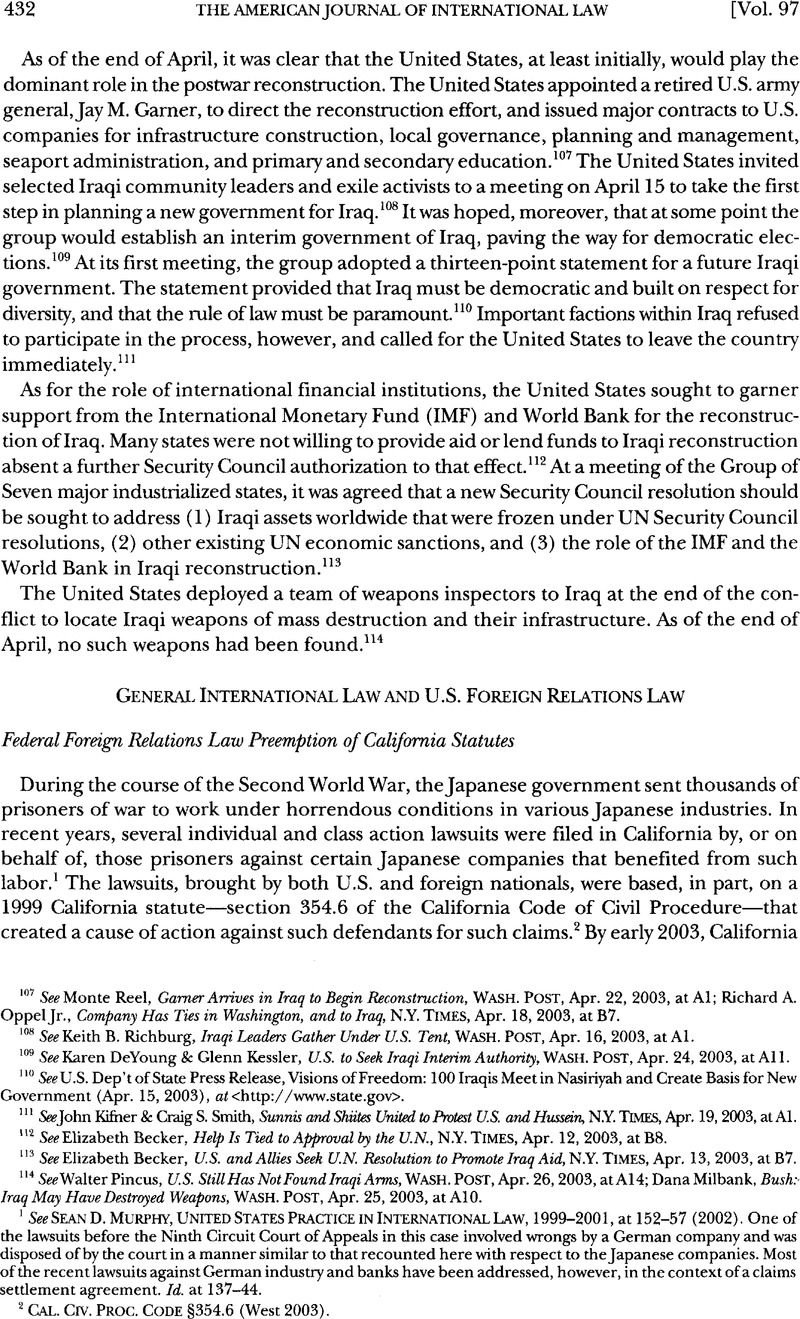Article contents
Federal Foreign Relations Law Preemption of California Statutes
Published online by Cambridge University Press: 10 March 2017
Abstract

- Type
- Contemporary Practice of the United States Relating to International Law
- Information
- Copyright
- Copyright © American Society of International Law 2003
References
1 See Murphy, Sean D., United States Practice in International Law, 1999–2001, at 152–57 (2002)Google Scholar. One of the lawsuits before the Ninth Circuit Court of Appeals in this case involved wrongs by a German company and was disposed of by the court in a manner similar to that recounted here with respect to the Japanese companies. Most of the recent lawsuits against German industry and banks have been addressed, however, in the context of a claims settlement agreement. Id. at 137–44.
2 Cal. Civ. Proc. Code §354.6 (West 2003).
3 Compare Taiheiyo Cement Corp. v. Superior Court, 129 Cal. Rptr. 2d 451, 469 (Cal. Ct. App. 2003) (upholding the statute on grounds that it was purely procedural and not substantive in nature), with Mitsubishi Materials Corp. v. Superior Court, 130 Cal. Rptr. 2d 734 (Cal. Ct. App. 2003) (striking down the statute as attempting to create a war-related cause of action).
4 See Treaty of Peace, U.S.-Japan, Sept. 8, 1951, 3 UST 3169, 136 UNTS 45. Article 14(b) expressly waived the claims of Allied parties and their nationals against Japan and Japanese nationals.
5 Diplomatic Note of the Government of Japan to the U.S. Government, paras. 3, 5 (Feb. 20, 2003), contained in Request for Judicial Notice of Diplomatic Correspondence from the Government of Japan to the Government of the United States[, and] Proposed Order (Mar. 5, 2003), Taiheiyo Cement Corp. v. Superior Court, No. SI 13759 (Sup. Ct. Cal.) (on file at GWU).
6 Deutsch v. Turner, 317 F.3d 1005, 1020–21 (9th Cir. 2003) (footnote omitted).
7 See Gerling Global Reinsurance Corp. of Am. v. Low, 240 F.3d 739, 752–53 (9th Cir. 2001). The Ninth Circuit’s decision in this case is currently before the U.S. Supreme Court on a writ of certiorari.
8 17 F.3d at 1027.
9 Id. at 1022 (citations and footnotes omitted).
10 Id. at 1023.
11 Id. at 1023–24.
12 Id. at 1025.
- 1
- Cited by


